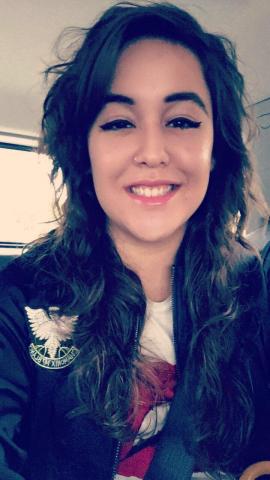10 of the Toughest College Interview Questions to Prepare For
Aug 19,2020
If you're nervous about your college interview, it's best to prepare as well as you can. Here are the toughest college interview questions you may encounter.
Thinking about your college admissions interview can be intimidating, to say the least. You worry that one wrong answer may keep you from entering the college of your dreams.
The interview process gives you a chance to show off your best self. It doesn't have to be scary. In fact, it can be fun.
As you answer college interview questions, you bring color and life to your application. And the more you stand out among the competition, the better.
The key to a good interview is knowing what to expect and being prepared with confident responses. Here are 10 tough college interview questions to help you get started.
1. Tell Me About Yourself
You can expect to talk about yourself in any interview. Make it personal. Offer a picture of who you are and what makes you "you."
Describe your hobbies, passions, family, and accomplishments. You want the interviewer to get a look inside your life and take away something to remember you by.
Avoid common descriptions such as, "I'm hardworking." Explain why you're such a hard worker and why a strong work ethic is important to you.
You don't have to dive into deep details about your life. Be brief but provide the foundation for who you are, what you care about, and what inspires you.
2. Where Do You See Yourself in 10 Years?
You don't need to have every aspect of your life planned out to answer this question. Colleges understand you're young and just getting started on your journey as an adult.
They're looking for direction and motivation on your part. Just show them that you're thinking ahead and have some goals for the future.
Think about what kind of person you hope to be and how you'd like to make a positive impact on the world. Answer this question in broad terms rather than pretending like you have all the answers right now.
3. Why Did You Choose Your Major?
If you've expressed interest in or declared a major, your interviewer may ask you to explain your interest in the field. Colleges are looking for students with academic goals and genuine interest in their chosen field.
Describe why this major inspires you. Tell them what made you want to go into this area of study and how it will help you achieve your future goals.
Although money is a motivator, don't describe the money you'll make or the job security the field provides. The interview is not the place to discuss money matters.
4. What Can You Offer to Our Campus Community?
Colleges want students who will contribute to growing and shaping the campus community. They want to see what you're excited about.
Those passions should come through in your answers. Don't answer with a general statement about making a positive impact—dig deeper.
Think about what you hope to participate in such as joining or starting a club, debate, music, dance, sports, etc. This is a time to be specific about academic, extracurricular, or community opportunities you hope to be a part of.
5. How Do You Define Success?
This question peeks into your character as a human being. Don't make it all about you—this is not the time to discuss future financial goals and success.
Instead, focus on your goal of making a real contribution to society. Show what matters to you in human terms and how your future success will involve giving to others.
6. Describe Your Greatest Strengths
Before your interview, make a list of adjectives that describe your personality. As you think about your list, come up with some examples from your life that demonstrate these character traits in action.
If your greatest strength is your drive, don't just say the word. Describe that strength and how it pertains to your academic or extracurricular pursuits.
You don't want to turn this time into a bragging session. But you do want to show an understanding of your strengths and how they affect your day-to-day life.
7. What Are Your Weaknesses?
Don't give the interviewer a list of negative qualities. We all have weaknesses, but you want to be careful about what you say.
The absolute worst answer is to say you have no weaknesses. That makes you look pompous, and that's not a good look.
Instead, think of a weakness you have that you can try to improve. For example, you might say that you're not the most patient person. Give an example and then offer some insight about how you're working on improving in this area.
No one is expecting you to be perfect. They just want to see that you have a realistic view of yourself.
8. What Is Your Favorite Book?
The interviewer is asking about your interests and love of reading with this question. Don't limit your response with the name of a favorite novel.
Explain why you enjoyed the book, what it meant to you, and why you'll always remember it. You can discuss a character and why he or she resonated with you or how the book shaped your perspective on a particular issue.
If there's a quote from the book that speaks to you, be sure to share it and explain why it's notable. If you choose a book you've connected with on a personal level, this question suddenly becomes much easier to answer.
9. Tell Me About Someone You Admire
You might see some variation of this question. They may ask who has been a major influence on you or whom you admire the most.
Again, don't limit your answer to naming a famous person from history. This answer should be authentic and specific.
Think about the people in your life or those in the world who have deeply influenced you in some way. Explain what this person means to you and why you have such admiration for them.
10. What Is an Obstacle You've Faced in Your Life?
The interviewer wants to know if you've experienced and overcome a significant challenge in the past. Think about a problem in your life such as a health challenge, family situation, academic issue, or anything that was a struggle in your life.
How did you face and overcome this obstacle? What did you learn from the experience?
Colleges want students who meet challenges head-on and do not quit when faced with adversity.
Mastering College Interview Questions
If you're feeling apprehensive about the college interview questions you may face, you aren't alone. It helps to think about the types of questions you may encounter. Take the time to practice before your interview.
Remember, your college interview is a conversation, so you don't need to memorize answers. There's no perfect response. Try to make a connection with your interviewer, be yourself, and relax.
Was this article useful to you? Look at our website and see how our organization can enhance your academic career and help you reach your highest potential.






